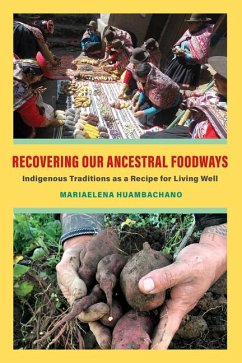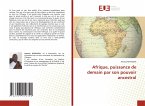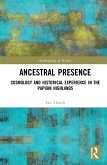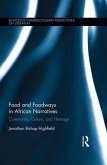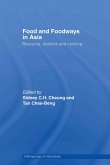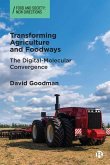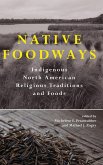"Mariaelena Huambachano takes readers on an engaging journey into the beautiful traditions and foodways of the Quechua and Māori peoples. In weaving a research methodology she calls the Khipu Model, Huambachano cultivates an important pathway for scholars working with and for Indigenous communities, demonstrating how research can be both ethical and respectful. This book will nourish your spirit, leaving you with a feeling of deep gratitude."--Charlotte Coté, author of A Drum in One Hand, A Sockeye in the Other: Stories of Indigenous Food Sovereignty from the Northwest Coast "Demonstrating the importance of food sovereignty within Indigenous communities and showcasing how critical Indigenous communities are to transforming our global food systems, Huambachano inspires us to remember, reclaim, and regenerate Indigenous foodways. Weaving together stories of intimate connection across the Pacific from Aotearoa to the highlands of Peru, Huambachano brings to life the theories and practices of Indigenous foodways, charting a way forward grounded in our shared histories, knowledges, and aspirations for the future."--Krushil Watene, Associate Professor of Philosophy, Waipapa Taumata Rau, University of Auckland "Huambachano beautifully explores narratives of holistic well-being in the Indigenous traditional foodways of the Māori and Quechua peoples as both a collective philosophy of life and a set of food practices that support environmental sustainability, food sovereignty, and cultural resilience."--Hannah Wittman, Professor of Land and Food Systems and at the Institute for Resources, Environment and Sustainability and Interim Co-Director of the UBC Centre for Climate Justice, University of British Columbia "Recovering Our Ancestral Foodways provides a striking contribution that few other works are able to by connecting spirituality and materiality--the cultural dimensions of food, food production, and trade."--Virginia D. Nazarea, author of There Is a Season: An Intentional Approach to Sustenance "Through a rich and interesting narrative, Huambachano takes us on a journey to Quechua and Māori farms while challenging Western paradigms of industrial agricultural production."--Kyle Whyte, Faculty Director of the Tishman Center for Social Justice and the Environment, University of Michigan

